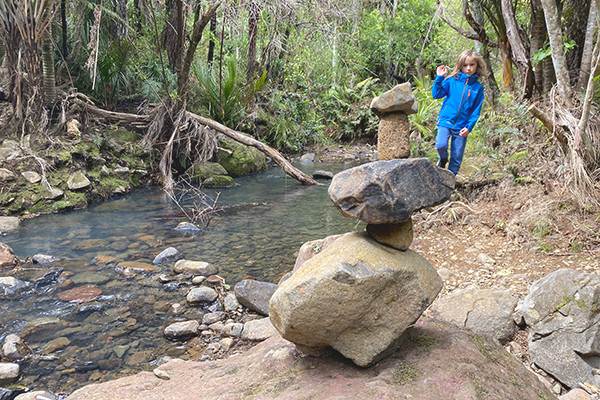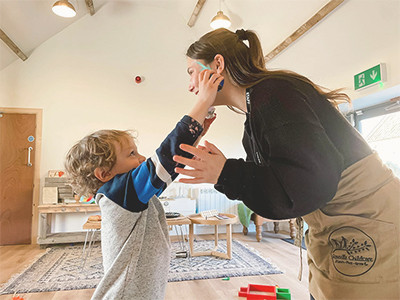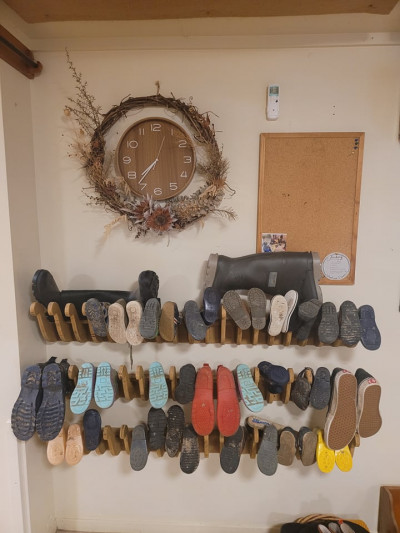
The last couple of years have been rough in early childhood education – rough for children and their families, educators, and leaders who have had to negotiate the uncharted waters of leading teams in Covid affected times. Never have we faced such uncertainty and risk in our day-to-day work as educators.
As a mentor and coach for leaders of early childhood services around New Zealand, I am hearing one consistent message – how do we juggle the need and desire to provide a high-quality service with meeting the needs of our stressed and overwhelmed teams?
There are, unfortunately, no silver bullets for this dilemma. However, I intend to provide some hope and direction for leaders to discern the wood from the trees and find a clear path forward.
Tip 1: Prioritise your own physical and emotional well-being
You can’t support others effectively if you are not well yourself. Are you making time for walking, running, dancing, yoga, swimming or however you enjoy moving your body? If you have young children, join them in a game of basketball, football, or whatever they’re interested in, and reap the benefits of exercising and having quality family time all at once. Take time to do what fills your emotional cup – quiet time alone, socialising with friends, treating yourself to some flowers or a massage. If you keep giving from your cup without replenishing it, it will eventually be empty. It is much better to fill your own cup to overflowing and then give to others from your saucer.
Realise that leading an early childhood service is never-ending – there is ALWAYS more you could do, so be sure to put boundaries in place and limit the time and energy you invest. Nothing is worth sacrificing your health.
“Health is a state of body. Wellness is a state of being” - J Stanford
Tip 2: Share the load and gather a support network around you
Being the leader of your service can sometimes be lonely, so seek out people who can provide a listening ear, wise counsel, or a sounding board. This support network may be from someone in a similar role, but not necessarily so. Those who can relate to the world of early childhood education but who don’t work in it can provide valuable insights and an outsider’s perspective.
Remember, you are just one member of the team. You don’t have to do it all, know it all, or take care of it all. No doubt your team will be happy to help where they can – so let them. Things might not get done exactly the way you would, but at least they will be done. Sharing the load with others is an opportunity for them to learn and grow. Think of delegation as a type of professional development.
Tip 3: Put your main effort into steering a steady direction for your team.
Make sure your team has a strong sense of purpose and a clear understanding of the positive changes you seek to make. It is tricky to maintain a sense of predictability in such uncertain times. Still, clear communication goes a long way to assure people – even if that communication is simply to let your team know that things are up in the air right now and you will update them as soon as possible.
Tip 4: Keep the documentation burden to a minimum by returning to the licensing criteria to ascertain minimum expectations.
We often put unrealistic expectations on ourselves and our teams in terms of documenting internal evaluations, professional growth cycles, assessment, and planning. Know what is required for compliance and cut back on anything else as far as is needed to keep things manageable. Spending quality time with children to support their learning is much more important than writing about doing so.
Having a learning story per child per month may have worked when you had full staffing, but it is likely no longer sustainable in these times of educator shortages and overwhelm. Focus on the documentation required for compliance and that which improves things for children.
My comments may very well promote a sense of fear and trepidation. If you comply with licensing criteria and seek to improve practice and learner outcomes, albeit slowly and incrementally, there is no cause for concern. Any improvement is an improvement.
Tip 5: Be prepared to articulate the rationale for the actions you take (or don’t take).
Sometimes in the interests of taking care of educator wellbeing, “this is all we can manage right now” is entirely justifiable, and two years of managing through a pandemic are one of those times.




 Angela Bush
Angela Bush